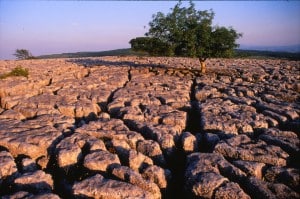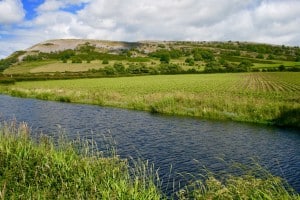Support us from £3/month
We deal with almost 1000 cases a year assisting communities, groups and individuals in protecting their local spaces and paths in all parts of England and Wales. Can you help us by joining as a member?
We are fighting an application from the Farleton Knott Commoners’ Association for a 550-metre fence along the west side of Puddlemire Lane across Farleton Knott common, in Cumbria.
Farleton Knott, close to the M6 three miles east of Milnthorpe, is a limestone hill of outstanding natural beauty and interest for its geology and flora and fauna. The application has been made on behalf of the commoners by the landowner, the Dallam Tower Estate.
The applicant wants to fence the road in order to introduce grazing and to prevent unauthorised access by mountain and trail bikes. Because the fence is on common land, the applicant needs the consent of the Secretary of State for Environment, Food and Rural Affairs, via the Planning Inspectorate.
Says Ian Brodie, a Cumbria representative of the Open Spaces Society: ‘This fence would be a severe intrusion in the landscape, closing in a road which is currently open. It would be a physical and psychological barrier to walkers who have rights over the whole common.
‘While the common may be in need of grazing, this can be achieved without a permanent fence. Cattle-grids would be a suitable, unobtrusive solution. We do not believe that the landowner’s claim of unauthorised access by bikes should be used as an excuse to erect an ugly permanent fence on this rare limestone gem.
‘The fell has been recommended by Natural England for inclusion in the Arnside-Silverdale Area of Outstanding Natural Beauty because of its splendid qualities.
‘We are dismayed that the landowner did not trouble to consult interested parties such as the Open Spaces Society in line with the good practice recommended by the Department for Environment, Food and Rural Affairs.
‘Landowners should not expect to solve problems of poor management with inappropriate solutions. We have urged the Planning Inspectorate to reject the application,’ Ian concludes.


